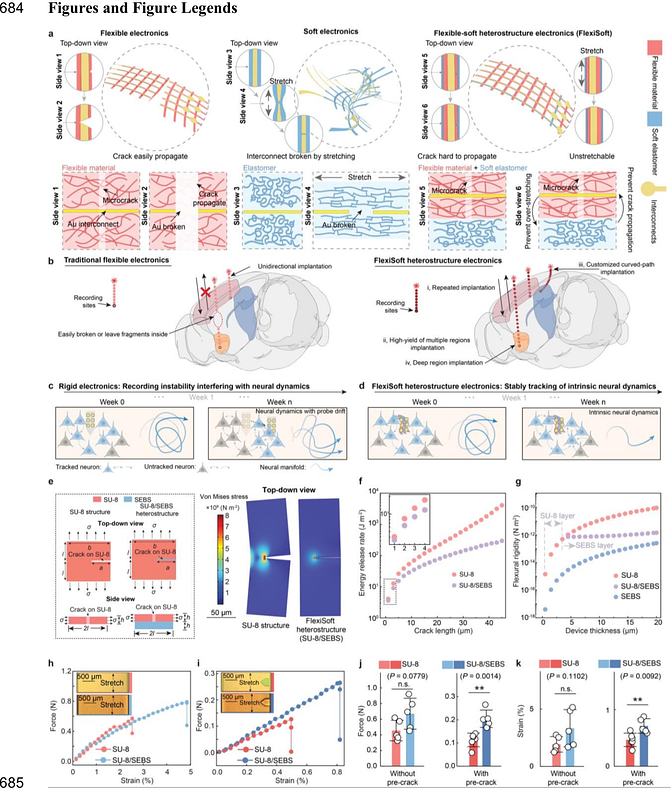Plastic-elastomer heterostructure for robust flexible brain-computer interfaces

Plastic-elastomer heterostructure for robust flexible brain-computer interfaces
Lin, X.; Zhang, X.; Wang, Z.; Chen, J.; Lee, J.; Lee, A. J.; Yang, H.; Remy, A.; Shen, H.; He, Y.; Zhao, H.; Zhang, X.; Wang, W.; Aljovic, A.; Vlassak, J. J.; Lu, N.; Liu, J.
AbstractElectronics for neural signal recording must be robust across multiple and deep brain regions while preserving tissue-level flexibility to ensure stable tracking over months or years. However, existing electronics cannot simultaneously achieve robustness and tissue-level flexibility, limiting their potential for customizable and scalable neuroscience research and clinical applications. Here, we introduce FlexiSoft, an electronic platform based on a plastic-elastomer heterostructure that uniquely integrates mechanical robustness and tissue-level flexibility. Compared to conventional flexible electronics of similar thickness, the FlexiSoft platform demonstrates an order-of-magnitude improvement in both mechanical robustness (critical energy release rate) and flexibility (flexural rigidity). Leveraging these mechanical advantages, we developed FlexiSoft probe for robust implantation, demonstrated by its ability to withstand repeated insertion and removal, as well as to reach centimeter-scale depths comparable to those in the human brain. The platform enables long-term recording from the same neurons across the hippocampus (HPC) and primary motor cortex (M1) during a months-long motor learning task, thereby revealing long-term dynamic changes in neuronal firing patterns. Additionally, FlexiSoft\'s unique robustness and flexibility enable curved implantation routes, opening new directions of customizable implantation pathways. In summary, we present FlexiSoft as a novel, robust, and tissue-level flexible heterostructure electronics platform that advances flexible brain-computer interfaces (BCIs) with strong translational potential for neuroscience and clinical applications.